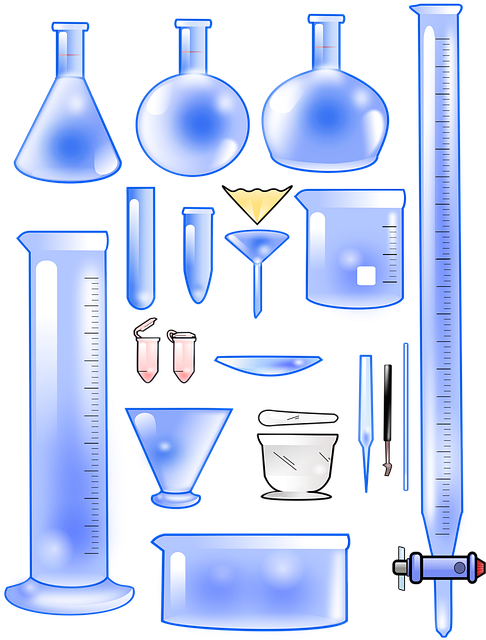Businesses leverage chatbot technology integrated with CRM and support platforms for enhanced operational efficiency. AI assistants automate tasks like answering FAQs, lead qualification, and product recommendations, freeing up human resources. This automation streamlines workflows, enhances responsiveness, reduces manual effort, and provides a comprehensive view of customer needs, boosting productivity and competitive advantages, as measured by key metrics like response accuracy, customer satisfaction, and support ticket volume reduction.
In today’s digital era, integrating chatbots with Customer Relationship Management (CRM) and support platforms has become a game-changer for businesses. This innovative approach enhances customer experience, streamlines operations, and boosts overall business efficiency. Understanding how chatbots can seamlessly integrate with CRM systems to automate tasks and provide 24/7 support is crucial. By leveraging the right chatbot technology, companies can optimize processes, improve response times, and deliver exceptional service.
- Understanding CRM Integration for Chatbots
- Enhancing Customer Support with Chatbot Automation
- Boosting Business Efficiency Through Seamless Integration
- Key Features of a Powerful CRM-Support Chatbot
- Measuring Success: Evaluating Chatbot Performance in CRM
Understanding CRM Integration for Chatbots

In today’s digital era, businesses are constantly seeking innovative ways to enhance their operations for maximum efficiency. One such game-changer is the integration of chatbots with Customer Relationship Management (CRM) platforms and support systems. A chatbot that seamlessly integrates with these tools can revolutionize how companies interact with their customers and manage internal processes. By combining the power of artificial intelligence (AI) agents with CRM data, businesses gain a competitive edge.
This integration allows AI assistants to access customer history, preferences, and past interactions directly from the CRM platform, enabling them to provide personalized support and make informed decisions. For instance, a chatbot can offer tailored product recommendations based on a customer’s previous purchases or even escalate complex issues to human agents within the support system. Such a structured approach streamlines business efficiency, reduces response times, and enhances the overall customer experience.
Enhancing Customer Support with Chatbot Automation

In today’s digital era, businesses are constantly seeking ways to enhance customer support while boosting overall efficiency. One innovative solution that has gained significant traction is integrating a chatbot with CRM (Customer Relationship Management) and support platforms. These intelligent virtual assistants can handle a multitude of tasks, from answering frequently asked questions to qualifying leads and even providing basic sales guidance. By automating these processes, businesses can reduce the workload on human customer service representatives, allowing them to focus on more complex issues that demand their expertise.
For e-commerce businesses in particular, chatbot automation offers a powerful tool for streamlining operations. An AI-driven chatbot can guide customers through the buying process, suggest relevant products based on browsing history, and even handle post-purchase inquiries. This not only improves customer satisfaction but also contributes to increased sales and business efficiency. Moreover, integrating these chatbots with an AI funnel can create a seamless experience, where prospects are nurtured through each stage of the sales cycle, from awareness to conversion.
Boosting Business Efficiency Through Seamless Integration

In today’s fast-paced business landscape, every efficiency gain can make a significant difference. A chatbot that seamlessly integrates with CRM and support platforms offers a powerful solution to boost business efficiency through automated processes. By leveraging AI agents, these chatbots can handle routine tasks such as customer inquiries, lead qualification, and data entry, freeing up human resources to focus on more strategic initiatives.
This integration streamlines workflows by connecting the dots between customer interactions, sales pipelines, and support systems. For instance, an AI funnel triggered by a chatbot can guide customers through a series of questions, qualify leads, and automatically update the CRM with relevant data. This real-time synchronization enhances responsiveness, reduces manual effort, and ensures that every touchpoint with a customer contributes to a more comprehensive view of their needs and preferences.
Key Features of a Powerful CRM-Support Chatbot

A powerful chatbot that integrates with CRM (Customer Relationship Management) and support platforms can significantly boost business efficiency. Key features include natural language processing for seamless communication, allowing AI agents to understand and respond to customer queries accurately. This ensures prompt issue resolution, reducing response times and improving overall customer satisfaction.
Additionally, these chatbots offer 24/7 availability, providing instant support to customers worldwide without the need for round-the-clock human agents. They can also handle multiple tasks, from simple query responses to complex sales promotions, using chatbot marketing strategies. By learning from each interaction and leveraging data stored in the CRM system, AI chatbots continuously enhance their performance, contributing to a more efficient and effective support ecosystem.
Measuring Success: Evaluating Chatbot Performance in CRM

Measuring the success of a chatbot integrated into a CRM (Customer Relationship Management) system is key to understanding its impact on business efficiency. Evaluating performance involves tracking relevant metrics such as response accuracy, customer satisfaction scores, and the reduction in support ticket volumes. By analyzing these metrics, businesses can gauge how well the chatbot handles queries, resolves issues, and ultimately enhances the overall customer experience.
For instance, an AI sales agent within a CRM platform should aim to provide accurate product recommendations and resolve customer inquiries swiftly. Ecommerce AI-powered chatbots that offer personalized shopping experiences have been shown to increase sales and reduce the burden on human support staff. Regularly reviewing chatbot performance data allows businesses to identify areas for improvement, fine-tune its algorithms, and ensure it continues to deliver optimal results, thereby driving business efficiency.
A chatbot that integrates with CRM and support platforms is a powerful tool for enhancing customer support and boosting business efficiency. By understanding the intricacies of CRM integration, leveraging automation, and focusing on key features, businesses can streamline processes, improve response times, and deliver exceptional customer experiences. Measuring success through performance evaluation ensures continuous improvement, making these chatbots a valuable asset in today’s digital landscape.
